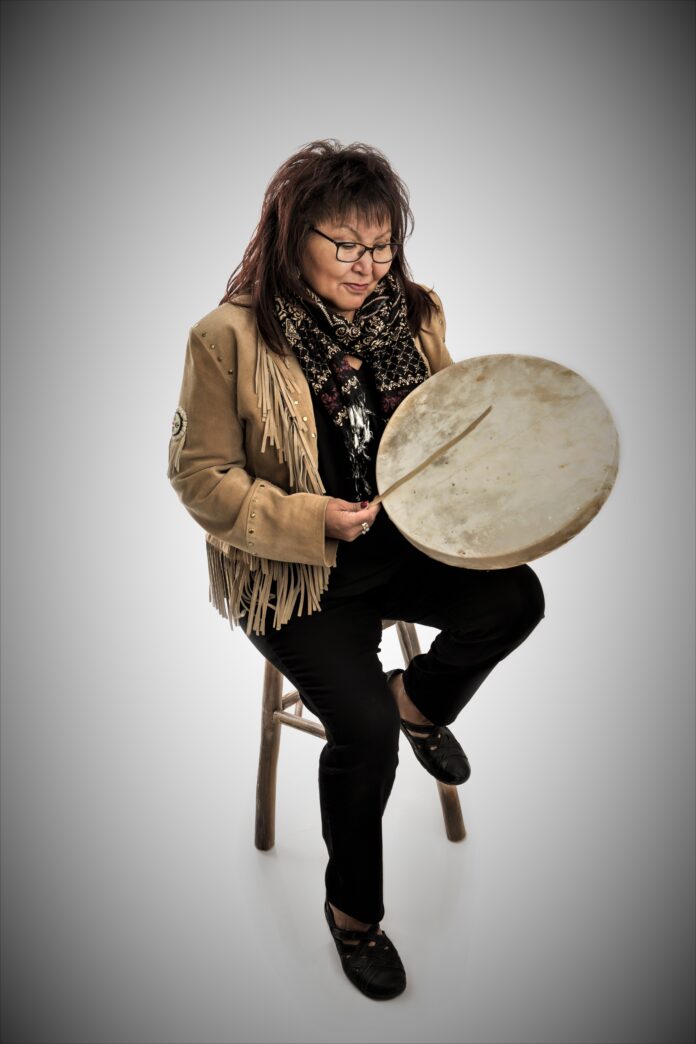As a residential school survivor who persevered despite being taunted and forbidden to speak her language, Hatchet Lake Dene Nation Elder Rosalie Tsannie-Burseth said she’s always been a bit of a rebel.
When Tsannie-Burseth was taken from her home in Wollaston Lake (of the Hatchet Lake Dene Nation) and sent to St. Michael’s Residential School in Duck Lake she made a pact with herself to keep on speaking her language. Now she works to keep that flame alive among Dene youth.
“I went to residential school from 1964 to 1970 and we were prohibited to speak our language. As a six-year-old, I thought in the future I wouldn’t allow anyone to prohibit me from speaking my language. Early in my years I made that pact to myself to do that. I decided then that I would become a teacher,” Tsannie-Burseth said.
“In many ways it was a soft rebellion right from day one.”
That rebellious spirit helped her succeed both in academia and as a respected Dene leader.
In February she added the University of Regina’s 2020 Distinguished Professional Achievement Award to a resume that already includes the Governor General’s Citizenship Award and Lieutenant Governor’s Award.
Tsannie-Burseth said she retained her ability to speak Dene by using the language when she went home in the summer and by finding ways around the watchful eyes of nuns at the school.
“My sister was with me, she’s a year older. So, when we went outside to play – we were always under supervision by the nuns – we’d go out in the field and we’d talk in Dene. There were other Dene kids there, too and we would whisper to each other in Dene. I don’t want anyone to whisper their language anymore,” Tsannie-Burseth said.
“When I left Wollaston in 1964 it was with no English, nothing. We came right from the land. I was taken right from the land and plopped into residential school. And then for them to say, ‘don’t speak your language.’ That shouldn’t happen. I can’t say I lost my language, I didn’t. It’s all within me.”
As a leader in education, Indigenous language and culture for more than 30 years, Tsannie-Burseth has served as the director of education at Hatchet Lake Dene Nation, Chief of the same community and most recently as associate director with the Prince Albert Grand Council (PAGC).
But she said her fondest memories are from when she started out working with kindergarten students in Hatchet Lake.
She taught language in ways that the children could relate to, by going out on the land doing activities such as fishing. The importance of land-based teaching has since taken off because of how successful it has proven in northern Indigenous communities.
“I asked myself, what would it look like if the curriculum was based on my linguistic and socio-cultural background?” Tsannie-Burseth said.
“When the children come into our care in our classroom, they bring with them immense knowledge and culture. Their language is happening at home. Your job is to look at that – really have a look at it in depth and teach with their knowledge that they live at home.”
Today, Tsannie-Burseth has circled back to her passion for building programs that work for the Dene people. Her PhD dissertation with the University of Saskatchewan is developing curriculum in a way so that young learners can “walk in both worlds.”
During her 11 years with the PAGC Tsannie-Burseth said she did a lot of policy work and pointed to a line that she said is key.
“In one sentence of policies it says we will teach our children our language and our culture so that they will walk impeccably in both worlds,” Tsannie-Burseth said.
“So, I challenged the leadership, the administration and the Chiefs as well. I asked, ‘are your children walking impeccably in both worlds?’ And they said ‘No.’ So there’s a lot of work.”
She said most Dene parents now want their children to be taught half in Dene and half in English. So that they can “walk in both worlds very comfortably.”
To walk in both worlds is to have a knowledge of the deep rooted philosophy of the Denesuline people, also our culture that we do every day. People tend to say, ‘traditional culture’ but it isn’t ‘traditional,’ it’s an everyday thing. That’s our way of life,” Tsannie-Burseth said.
We’re given our language by the Creator. Our forefathers, even with the signing of the treaties, said to never lose sight of who you are. Language is key. You must never, ever quit talking and don’t let anybody tell you otherwise. It’s a gift and it also enhances your thinking.”


